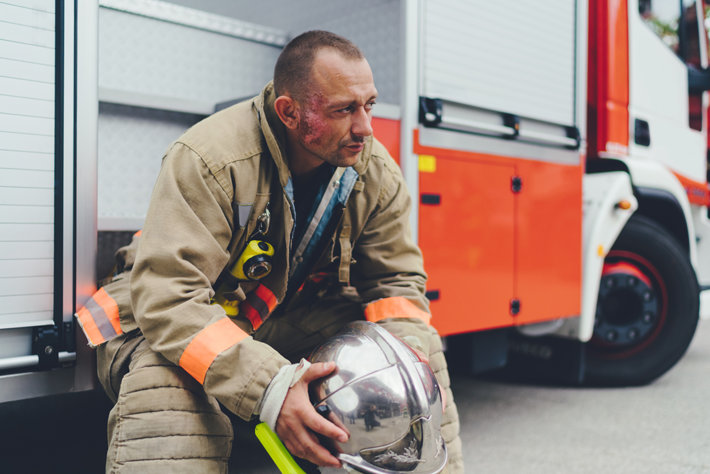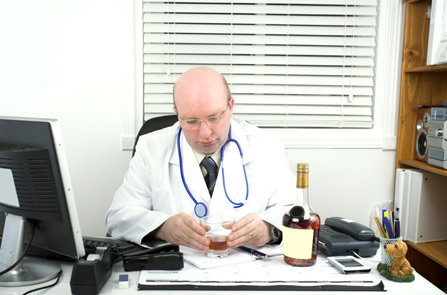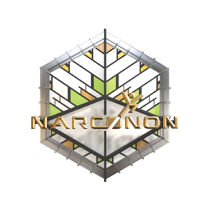Addiction Among Health Professionals and First Responders

Drug and alcohol addiction is a challenging, life-threatening concern that sadly plagues millions of Americans. Tens of thousands of lives are lost due to substance abuse each year, and millions of families are torn apart because of it.
Addiction can happen to anyone. No background, living situation, income level, demographic, or life situation is a 100% guarantee that one will not experience a drug problem at some point in their life.
Substance abuse is a wholly personal and unique problem that affects people differently. But with that being said, some people (because of their career or other factors) may be more likely to face conditions in life that push them towards drug use or alcohol misuse. One example would be that of a highly stressful career. When people face daily stress factors, they may be compelled to use mind-altering substances as a coping mechanism. That’s why, even though professions like medicine, nursing, and emergency response are highly respected and valued careers, it is not unheard of to find addiction as a significant problem in such jobs.
Stress, Exposure to Substances, Physical Pain, and Other Factors Increase Addiction Risk
What do EMTs, firefighters, medical practitioners, and law enforcement officers all have in common? Their careers involve a fair degree of stress and daily exposure to some of the world's most severe hardships. It's also likely that such individuals will experience physical pain and be exposed to both legal and illegal mind-altering substances.
These factors create something akin to a perfect storm. Emergency responders and health professionals experience higher than usual job-related stress, and they often have direct contact with mind-altering substances. Add to that long work hour, workplace hazards, and other stressors and physical pain can quickly become a chronic condition.

The result of these combined factors is often a move towards self-medication and experimentation with substances in a misguided effort to reduce physical and/or mental stress. Nurses and doctors may take drugs to cope with the stress of working in a medical center. EMTs may take stimulants to help them stay awake and alert during extended hours and stressful shifts. Law enforcement officers may take painkillers to cope with the injuries and physical demands of their job.
And unfortunately, it’s not just covert self-medication and hidden, illicit use that causes problems for people in the above fields. The accepted health approach in the U.S. is so often “Got a problem? We have a drug for that.” So when doctors, nurses, EMTs, firefighters, police officers, and other responders choose not to self-medicate and decide instead to openly seek help for their workplace struggle, they are often just put on mind-altering drugs anyway! In a “medicate first” society, such individuals often do not get the proper care that they need to sort our their workplace stressors.
A Challenging Career Presents Additional Risk
Though they are honorable, valuable and needed, medical professionals and emergency first responders have chosen careers that can be stressful, difficult, emotionally trying, and even downright dangerous. In fact, with law enforcement in particular, there is an actual risk to their lives in merely doing their day-to-day job.
While drug and alcohol addiction is truly a unique, personal issue that affects everyone differently, it is also true that a generally stressful and dangerous career can easily be a contributing factor to drug abuse. When people face a significant amount of hardship just by getting up and going to work every day, they are more likely to experiment with drugs and alcohol as a coping mechanism. They may initially seek out mind-altering substances in the hopes that such substances will make their lives less stressful. Unfortunately, the substances inevitably make conditions far worse, not better.
There is no doubt that getting medical professionals and first responders help for addiction is the critical point. But making these careers less stressful and less dangerous should also be a priority.
Drug Rehabilitation Offers a Solution to Addiction
Every year, not only do first responders and medical professionals suffer from addiction, but several actually die from substance-related problems. Just taking law enforcement alone, each year several police officers lose their lives not in the line of service, but because of alcohol-related poisoning or drug-related accidents or overdoses. These deaths are entirely preventable.
Drug and alcohol addiction is a dangerous and life-threatening condition that can spell the end for anyone who falls prey to such crises. At the end of the day, it does not matter what type of job a person has or how stable their life might seem. Addiction is a life or death crisis, and it can be fatal for anyone.
That's why those who struggle with substance abuse must have access to drug and alcohol rehabilitation programs. And for those who are already in highly stressful careers, getting them help as soon as possible is critical.

Doctors, nurses, EMTs, firefighters, and police officers may require additional assistance in getting into treatment because they might not want to admit to having a problem in the first place. They may feel that, if they admit to having a drug problem they would risk their career position.
It could not be more crucial to dissuade individuals of this notion. Because of the nature of addiction and the dwindling spiral that sets in as a result of ongoing substance abuse, no addict can continue to keep their drug use a secret and continue to function within their chosen profession. Eventually, the addiction will grow and overtake all aspects of the individual’s life. Addiction does not get better on its own. That’s why seeking treatment is necessary. It's essential that responders and medical experts who struggle with addiction get help so they can continue to be valued members of society.
Don’t let your family member or loved one fall prey to addiction. Don’t let it ruin their life and the career they’ve worked so hard for. Don’t let it be the end of them. Please help them by contacting Narconon today.
Sources:
- https://www.latimes.com/opinion/op-ed/la-oe-grinspoon-addicted-doctors-20160605-snap-story.html
- https://inpublicsafety.com/2017/09/much-drug-use-occurs-law-enforcement/
- https://law.siu.edu/_common/documents/law-journal/articles-2016/spring-2016/12%20-%20Miller%20-%20sm.pdf
- https://journals.lww.com/nursing/fulltext/2015/03000/The_sneaky_prevalence_of_substance_abuse_in.6.aspx
- https://www.ncbi.nlm.nih.gov/pmc/articles/PMC3592498/
- https://www.forbes.com/sites/niallmccarthy/2019/05/08/the-number-of-u-s-police-officers-killed-in-the-line-of-duty-increased-last-year-infographic/#2c4c4cf71189
- https://nleomf.org/facts-figures/causes-of-law-enforcement-deaths
Reviewed by Claire Pinelli, ICAADC, CCS, RAS, MCAP, LADC

